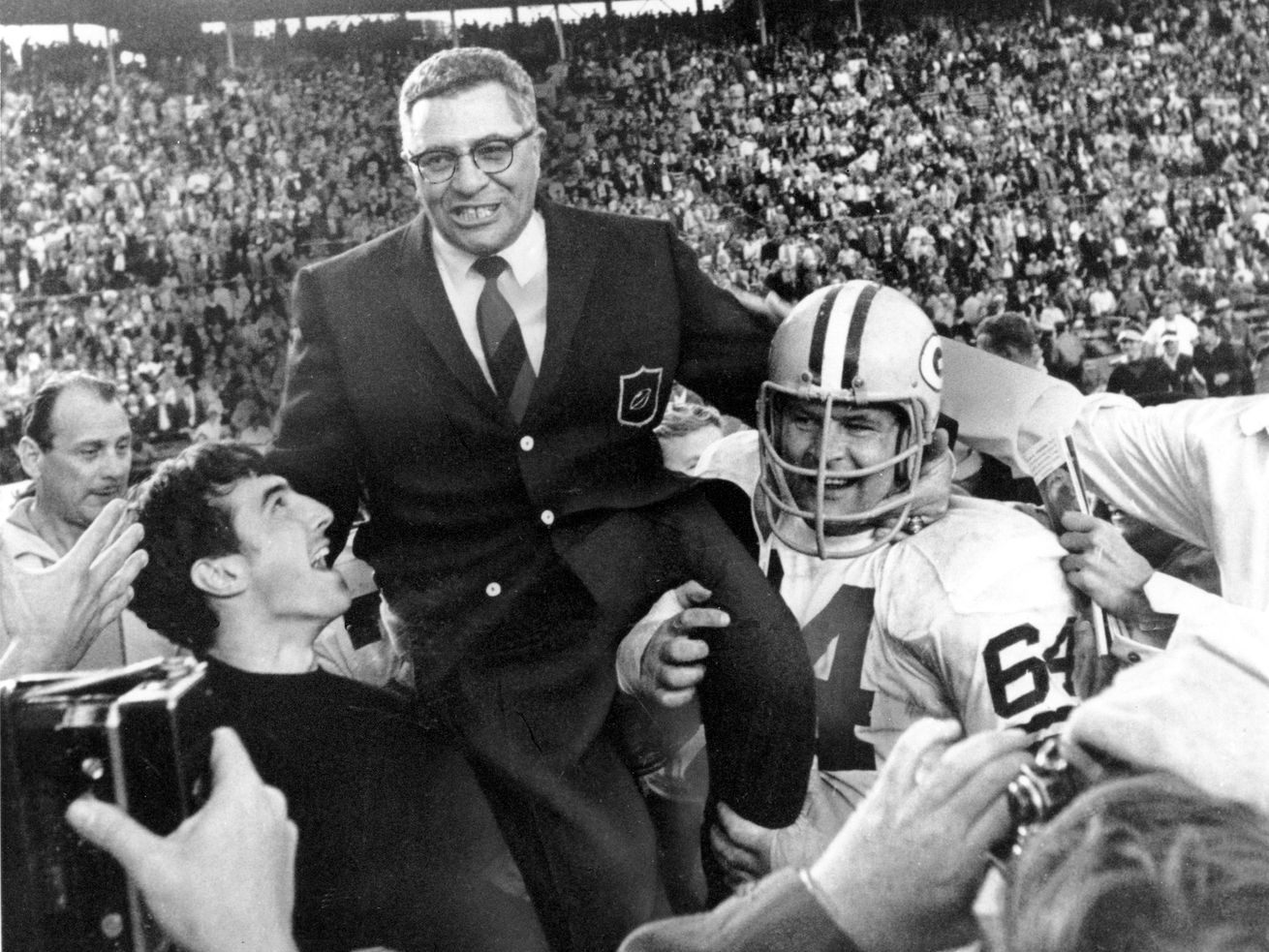 Green Bay Packers coach Vince Lombardi is carried off the field after his team defeated the Oakland Raiders 33 to 14 in the Super Bowl II game in Miami, Fla. on Jan. 14, 1968. | Associated Press
Green Bay Packers coach Vince Lombardi is carried off the field after his team defeated the Oakland Raiders 33 to 14 in the Super Bowl II game in Miami, Fla. on Jan. 14, 1968. | Associated Press
Vince Lombardi was a legendary football coach who is remembered for his refusal to tolerate losing. In fact, what most people remember about Lombardi is his famous quote: “Winning isn’t everything; it’s the only thing.” But it is clear from the way he ran his football team that there was something more important to him than winning, and that was treating everyone equally, regardless of race.
At this point, football has been largely shut down by the coronavirus. Unfortunately, racial prejudice has not. While the return of football is something that most of us can’t do anything about, each of us can do something to promote equality and justice. We can all learn something about how to do this from the example of Vince Lombardi.
Lombardi began his efforts at fostering equality by making sure that prejudice was not a part of his own way of thinking. When a sportswriter asked him how many Black players were on his team, Lombardi replied: “I can tell you how many players I have on the squad and I can tell you which ones aren’t going to be here next year, but I can’t tell you how many are Black and how many are white.” When the disbelieving reporter said, “Come on!” Lombardi explained, “I’m not saying I don’t know who’s Black and who’s white on the club, I’m just saying that I have no sense of it when I’m dealing with my people.”
But it wasn’t enough for Lombardi to treat people fairly himself; he demanded that his team do so as well. During his first season as head coach of the Green Bay Packers, Lombardi made it clear that he was even less tolerant of racism than he was of losing. He gathered his team together and told them that if he ever heard a player use racial slurs “or anything like that around here, regardless of who you are, you’re through with me. You can’t play for me if you have any kind of prejudice.” For Lombardi, an organization could not tolerate racial prejudice from any of its members, no matter how talented they were.
Lombardi didn’t just preach equality, he demonstrated that he was committed to racial equality through his actions. When the Packers played an exhibition game in the South, he became incensed when a restaurant owner demanded that all of the Black players enter and leave through the back door. Lombardi then ordered that all players on the team would enter and leave through the back door. When he found that he couldn’t overcome a local segregationist ordinance that forced the Black players to stay at an all-Black college, Lombardi called the players together. With tears in his eyes, he said, “I’ll never, absolutely never, put you guys in this situation again. If it means we play no more games down here, that’s the way it will be.”
Ironically, Lombardi was not always able to distinguish different colors in real life. His wife Marie said, “Not many people knew it, but he was color-blind. He could tell green from red or orange from brown, but had trouble with shadings, subtleties.” But he certainly could observe subtleties when it came to the way that people of different races were treated. In the words of his biographer David Maraniss, “Lombardi might have seen only one color on the football field, but he was not blind to the discrimination that his Black players encountered off the field, and he did everything he could to ease their way in an alien environment.”
Vince Lombardi did not have a perfect record as a head coach in the NFL, and none of us has led a perfect life. But we can learn from Lombardi’s intolerance of racism and make sure that when it comes to our thoughts and actions about racial equality, we will have a winning record.
As former Packer Bill Curry said about Lombardi: “He didn’t care about the color of your skin. He cared a lot if you could play football, and he cared a lot if you were a good human being. He had a gift for selecting all of the above and blending all of those various qualities.” We, too, can make sure that when we look at others, we see their abilities and qualities, and treat them all fairly and justly.
Blake R. Hills has been a trial attorney for over 20 years. Jeremy B. Hills is a student at Brigham Young University.
from Deseret News https://ift.tt/3hOjTqo

No hay comentarios:
Publicar un comentario